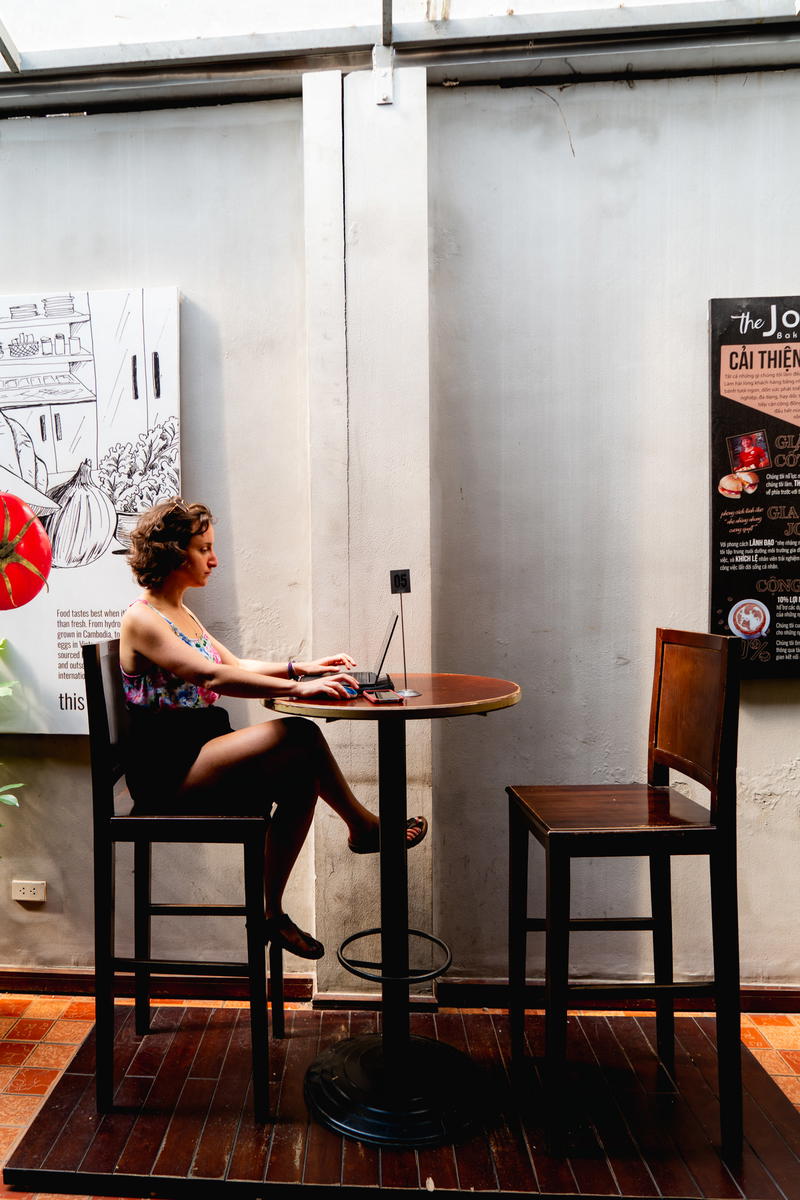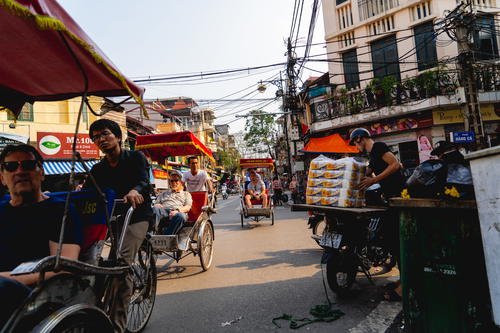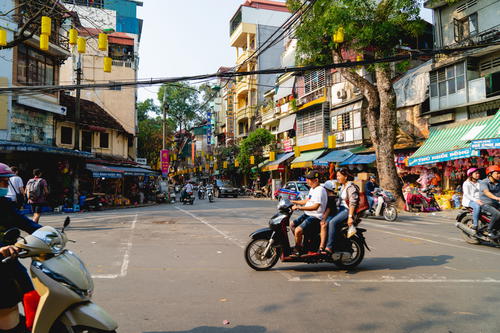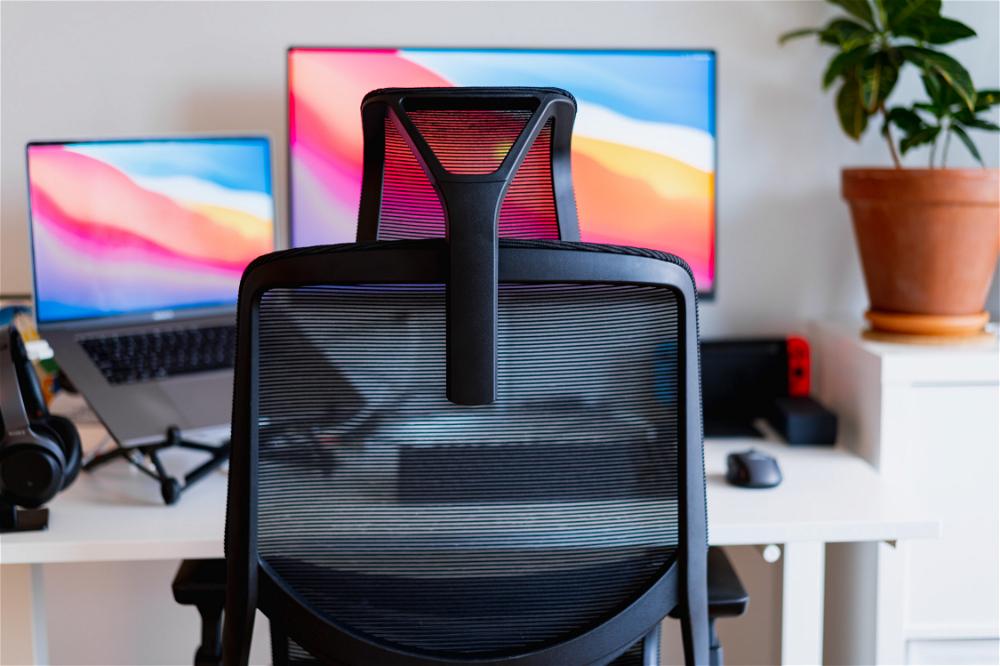15 Pros and Cons of Being a Digital Nomad (2026 Guide)

Discover the pros and cons of being a digital nomad from someone who's lived it. Learn the benefits and challenges of working remotely while traveling, including time zones, internet issues, and lifestyle advantages.
This article may contain affiliate links. We earn a small commission when you purchase via those links — at no extra cost to you. It's only us (Becca & Dan) working on this website, so we value your support! Read our privacy policy and learn more about us.
Table of contents
- Incredible independence
- Learning to navigate other cultures
- Meeting people you’d never meet at home
- Being able to travel to new places on weekends
- Creating a new type of schedule for yourself
- Lower expenses and cost of living (geographic arbitrage)
- Unique inspirations
- Solving burnout and escaping the grind
- Time zone challenges
- Internet challenges
- Being away from friends and family
- Missing the in-person aspect of work
- Loneliness
- No one really understands what it’s like
- Stressing over your next move
I often get asked about the pros and cons of being a digital nomad. People will ask me, “What was the hardest part?”
The truth is, being a digital nomad and working remotely while traveling is an amazing experience. It does not, however, come without challenges.
I’ve put together the biggest benefits and disadvantages that I saw during a long stretch of being a digital nomad. Find out if this lifestyle is for you, based on what follows.
The Pros
OK, now onto the advantages and major benefits of being a digital nomad. What’s so awesome about this lifestyle? Let me explain.

Incredible independence
Nothing screams “independence” like leaving your home country to go work remotely in Thailand, or Italy, or Brazil. There is truly nothing like it.
I felt fiercely independent when I went to go live abroad in China for two years, and living abroad changed my life in so many ways.
Being a digital nomad let us decide where we wanted to go next, and how long we wanted to stay in a place. It taught us how to manage our finances so that we could see what would be a good move, and when.
We got to choose who we hung out with socially, and didn’t let our lives in the US affect our choices on who we associated with, whether locals or expats. We basically had all the freedom in the world.
Learning to navigate other cultures
The first time I navigated a new culture was by studying abroad in Hong Kong when I was in my third year of college. I was absolutely hooked.
So when Dan and I left our full-time jobs in NYC to travel and work remotely for however long we felt like, I was excited to see the cultures in Eastern Europe, Peru, Mexico City, Ireland, Taiwan and Vietnam.
While our remote jobs were totally online and mostly US-based, it was our daily life that was part of a new culture. It was making friends with the vendors we’d buy fruit from in Lima, chatting with the Airbnb hosts we had in Ireland, getting our haircuts in Hanoi and learning about all the ways to order tacos in Mexico. We did these cool cultural things, all while maintaining our virtual jobs.

Meeting people you’d never meet at home
One of the many benefits of coworking spaces, which is something I’d suggest that all digital nomads join, is meeting interesting people.
Most digital nomads join coworking spaces for the social aspect (some have social events, or networking mixers). If a coworking space doesn’t bring you the social engagement you were looking for, there are lots of digital nomad Facebook groups around the world. Just search Facebook for “digital nomads in city” and you may get your hit.
Of course, if you join a remote work and travel program like Remote Year, Noma Collective, WiFi Tribe or a coliving like Outsite houses, you will meet people in these social scenarios. The number of cool people I met from Dan’s original Remote Year program and our shorter 4-month Remote Year program has been immense, as has been the continued nomad community of all the alumni, online.


Being able to travel to new places on weekends
While doing a short digital nomad stint in Merida, Mexico, we took our weekend trips to Izamal and Uxmal. In Vietnam, we went trekking in Sapa, and boating in the karst waterways of Ninh Binh. In Mexico City, it was early mornings to the Teotihuacan pyramids and in Lima, Peru, it was sand-boarding in Huacachina.

Creating a new type of schedule for yourself
“Schedule” starts to have a whole new meaning when you’re a digital nomad. For me, I try to keep a 9-to-5 workday, but with a bit more flexibility, and some more fun.
In Lima, this meant leaving the coworking space to find lunch at a Peruvian local restaurant. In Vietnam, this meant a day spent sightseeing, and then starting work at 9pm, but also squeezing in some work time at cafes in the afternoon.
Scheduling my workdays took on a new meaning when I was in different time zones, or, if I was in the same time zone working traditional business hours, it meant packing in some local culture.

Lower expenses and cost of living (geographic arbitrage)
I maximized our entire time spent as digital nomads in lower cost-of-living areas. This was most important to me, if we were going to be working on a new business, and working for our old jobs part-time with fewer benefits like paid time off.
I focused my energy on researching the cost of living in places like the Canary Islands, Latvia, Taiwan and Vietnam, all while working from my laptop in Colombia. We chose to extend our time in Mexico City because it was so affordable and we enjoyed the quality of life.
Geographic arbitrage means using geography to your advantage, and using location ‘arbitrarily’ to get the same type of thing done. While some nomads like to maximize their time in Europe, I chose to focus our locations on where we could live the most affordably, while also bringing in American hourly salaries.

Unique inspirations
One of my first thoughts about working in a coworking space in Medellin, Colombia, was, “Wow, this is so much more inspiring than my New York office.”
My office in NYC was white, with gray carpeting, rows of desks and a few conference rooms. It was modern, but it wasn’t interesting.
In Medellin, I was doing the same work from my laptop, but I was listening to the river running in a nearby creek, next to giant leafy greenery, and working next to people from around the world doing various types of jobs on their laptops. I considered moving my hot desk to another area, like the outdoor patio that felt almost like a treehouse, or the quiet yoga room upstairs with a window to the roof. I was inspired.
I used this inspiration to fuel my creativity in powering this blog, growing a business and thinking of new ways to network. I felt like the world was my oyster.
Solving burnout and escaping the grind
A lot of people suffer from burnout, and that’s exactly the thing that pushes them to take a leap of faith and start a digital nomad journey. It’s what happened to me, and so many others that I met while we were on the road.
Burnout happens from working too much, commuting too much and feeling drained too much. Of course, taking the same job but to a different location won’t solve your work problems (it may make them worse or even exacerbate them).
But having the variety of new surroundings, the ability to make new friends as a digital nomad, have new experiences and see more cultures makes your brain perk up a bit. And that’s why I like being a digital nomad.
And now for the cons.
The cons
Let’s start with the downsides of being a digital nomad. If it sounds difficult to work remotely and travel far from home, well… it is!
Time zone challenges
Right off the bat, let’s get into this very clear disadvantage of digital nomad life. When Dan and I worked remotely in Vietnam, it was undeniably hard to work with our US-based managers while on East Asia time. This is one of the biggest challenges of working remotely while traveling.
You see, East Asia is flip-flopped with NYC and the East Coast and/or the West Coast of the US. 12pm is roughly 12am, and so on. We wound up working from 9pm to 2am most nights, and then called it quits because we were tired. In this way, we were also sleeping til about 10am every day, and it just felt weird.

I should also say that if you need an office environment for your job, that finding a coworking space with 24/7 operating hours might be hard to come by in some parts of the world.
Of course, if you travel the world and stay in the same time zone (for example, NYC to Ecuador, Peru or Colombia), you can avoid the time differences completely.
Internet challenges
Around the world, internet can be vastly different. Internet reliability is one of the most common digital nomad challenges you’ll face. At home, we’re used to lightning-fast internet. What I learned when I first left home to work abroad for the first time was that Internet in different parts of the world can have very different standards.
Most of the time these days, internet is acceptable. The worst internet I’ve ever had in my life was in Bolivia, quite a few years ago by this point. I think things have improved. However, the best advice I can give is to do your research beforehand, because deciding on an amazing destination to live in is very different than an amazing destination that also has fantastic wifi.
A way to check out reviews on overall wifi speeds is Nomad List, which I recommend in the best tools for travelers.
An internet “challenge” not to be forgotten is that you might need a VPN, like I did, in some parts of Asia. Check out why you need a VPN for travel.

Being away from friends and family
When I lived abroad and worked abroad in China, missing friends and family was hard. Granted, working an office job in China without much wiggle room on when I could fly home was the first crux of the matter. Being a digital nomad usually means you can fly home on a whim, or at least have more control over your schedule, like paid time off.
I missed Thanksgiving for two years straight and I missed my best friend’s wedding. I missed babies being born, kids in the family growing older, and a lot of fun nights out with my friends who were all living in NYC and DC.
Of course, I had made my own friends by living abroad and was doing incredible things there. But I had slight FOMO of all the “life goes on” happenings that went on back home … without me.
Missing the in-person aspect of work
If you work for a company that has an in-person or hybrid office, maybe in NYC for example, and if you’re off being a digital nomad, people might kind of “forget about you,” for lack of better term.
When we worked remotely and traveled in Europe, South America and Asia, I was part of a 100-person company (though I was a part-time remote employee, as I explained on my podcast episode with How to Money). I had previously been working in the NYC headquarter office for six years. My colleagues knew me by face, and I had had to convince my boss to let me work remotely and travel.
Being remote, and not even in the same time zone, let alone the same country as my teammates, made me a bit foreign. No one really knew where I was, and it was hard to tell if it made me seem less dependable.
Loneliness
There are essentially two ways to be a digital nomad: to go out in the world alone, or to join a remote work and travel program.
Going to a new city where you don’t know anyone, and working remotely every day, can be isolating if you don’t have the means of finding a group of friends and combatting transience.
Especially for digital nomads who plan to spend a few weeks or months in a city and then move on, you risk having to “start over” every time you move. It can be isolating and it can be stressful, if you thrive on social networks, like I do.

A way to combat the disadvantage of loneliness as a digital nomad is to join a remote work and travel program. While I did Remote Year, there are lots more out there. Check out all of the best remote work and travel programs.
No one really understands what it’s like
Unless you have other digital nomad friends or anyone who has adopted a semi-nomadic lifestyle over the years, family and friends may have trouble grasping why you’ve chosen the digital nomad thing, and how you’re doing it.
Especially for older generations, and people who don’t have the capacity to work remotely, they may ask if you’re “still working,” or just romping around the world from place to place.
The other thing to know is that if you’re ever interviewing, and your interviewer doesn’t understand the gist of traveling and working remotely, you may have to clarify a lot. I once had a hiring manager tell me that I seemed like too much of a “free spirit” because of all my traveling.

Stressing over your next move
Unless you join a remote work and travel program where everything is pre-planned (and whereby you’re paying to have it this way), being a digital nomad requires a lot of legwork.
It’s like planning a vacation, but on repeat (unless you stay in the same city for a year). I remember being in our coworking space in Mexico City, losing my mind over all the flight options from New York City to Hanoi, Vietnam, and when we should pull the trigger on booking. It made my head spin, even though I had mastered travel hacking years before.


Then there’s accommodation. We weeded through Airbnb for a few days on end, while looking up where we’d live for three weeks in Taipei. I sent messages to multiple Airbnb hosts about our dates and with our questions. I spent a lot of time doing this. I lost time I could’ve spent working, to pay for that accommodation and for those flights.
What I’m explaining is all the work that goes into repeatedly planning your travel logistics when you don’t have a home. A lot of this time spent turns out to be a lost cause, if you abandon an idea, or a sunk cost of your own efforts.
💻 Leveling up your remote work setup?
We built these resources from years of laptop life on the road. If our remote work tips gave you a boost, a coffee helps us keep testing tools and ideas.
Support our remote work guidesYou may also like
-
![A woman standing on a street in a city.]()
What to Expect as a Digital Nomad in Lima
Choosing Lima, Peru, as a digital nomad destination is a great choice. Here's what it was like to start working remotely there.
-
![People on a beach next to light blue ocean water]()
55 Free Virtual Zoom Backgrounds
Need some Zoom background images for free? Try our free Zoom virtual background downloads based on the most popular images from our travels around the world.
-
![]()
How to Get Paid to Travel the World: 32 Money Making Ideas
Discover 32 ways to get paid to travel in 2025. From remote work and teaching abroad to content creation and travel jobs with no experience required. Real examples from travelers who make money while exploring the world.
-
![A desk chair with a monitor and a laptop.]()
FlexiSpot Soutien Ergonomic Office Chair (Honest Review)
The FlexiSpot Soutien Ergonomic Office Chair is a budget-friendly chair that you can get to amplify your work from home experience. Read my honest review to learn my thoughts about it!
-
![]()
How to Work Best across Multiple Timezones (17 Tips That Work)
I took on the challenge of working with people in multiple time zones for my job, and learned the tips for overcoming time zone differences. See what worked for me.
-
![]()
What is a coworking space? We define the meaning of coworking spaces, how they work, what they offer, and why they are great for remote workers in 2025.







